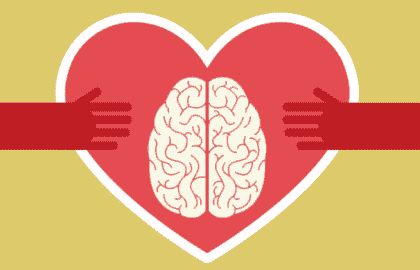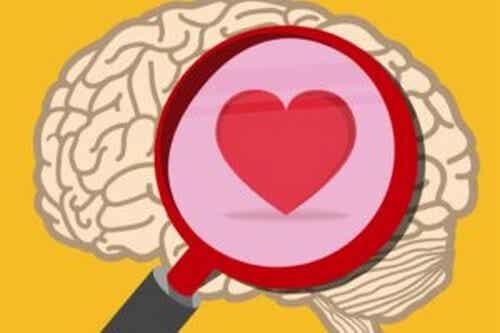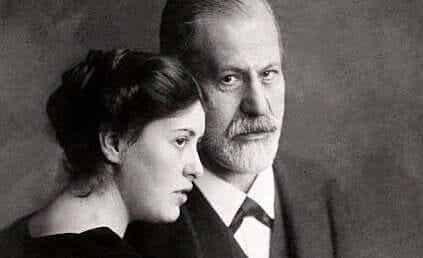We are not passive in front of what happens around us and for this we maintain a deep inner dynamic. Developing emotional intelligence is also a way to spot such changes.

Last update: December 09, 2019
Developing emotional intelligence means increasing the ability to recognize the patterns our emotions conform to. In other words, identify which factors activate emotions, how and where that activation leads.
The human being follows a more or less stable line of action throughout the course of his life. However, change is also a constant. In particular, emotions are always in motion. We are not passive in front of what happens around us and for this we maintain a deep inner dynamic. Developing emotional intelligence is also a way to spot such changes.
"Conscience is the voice of the soul and passions are the voice of the body."
-Jean Jacques Rousseau-
The ultimate goal is to stop being passive spectators of what happens in our inner world. No emotion is produced or dissipated by chance. If we can identify what we are feeling and anticipate how it can affect us, we would undoubtedly be more adaptive. Below we provide you with 3 strategies for developing emotional intelligence.
Strategies for developing emotional intelligence
1. Examination of the reasons
One of the exercises that most help develop emotional intelligence is to frequently examine our motivations. Motivation is the force that pushes you to follow a certain direction. Both psychoanalysis and other contemporary currents have shown that many times we ignore our real motives.
Sometimes we sincerely pursue the deepest desires of our being. So, we act accordingly and this gives us a certain balance. Other times, however, we ignore the reason why we lean towards one choice and not another. Or we think one way, and act another. Or, simply, we are dissatisfied with our actions without knowing exactly why.
An examination of the motivations leads us to investigate the forces that drive us to act. Will or fear? The decision or the habit, the frustration, the anger or another emotion? Examining the motivations leads us to develop emotional intelligence.
2. Understanding the use of time to develop emotional intelligence
One of the most revealing elements of the emotional world is the distribution of our time. This is an abstract category, which offers a valid track for understanding our psychological reality. So that, by analyzing the way we use time, we are also able to develop emotional intelligence. In particular, it is important to observe if there are some elements in time management. They are:
- Procrastination.
- Feeling of lack of time.
- Perception of slowness in its flow.
Each of these conditions embodies concrete emotional situations. Procrastination represents insecurity and lack of commitment; moreover, it can sometimes signal an unconscious rejection of what is postponed. The feeling of lack of time represents obsession and anxiety. The slow flow suggests melancholy. Analyzing our perception and time management is a valid source of information to get to know us.
3. Adjust the emotional tone
One of the factors that helps develop emotional intelligence is identifying the emotions we experience frequently. In our way of being, some emotions prevail over others. For example, some spend days angry, while others tend to laugh at everything or get discouraged.
The emotion that predominates is what gives a particular emotional tone to each of us. Many times we "marry" exclusively with one of these emotional dimensions. We build an explosive or passive and fearful personality, or even chronically sympathetic and we adapt to it forever.
Without realizing it, we forget how to feel another way. We get used to these predominant emotions and end up turning them into the fulcrum of our way of being.
To develop emotional intelligence, it is advisable to learn to regulate the emotional tone. That is to say, to limit the predominant emotions, allowing the non-habitual ones to emerge. This is a way to explore other areas of our essence and allow new sensations and emotions to emerge. This, in turn, enlightens us about our inner world.
The development of emotional consciousness gives greater clarity of action. It also gives a more authentic meaning to actions. Without a doubt, it is one of the goals that lead to a fuller life and a healthier personality.


























